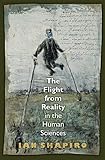The Flight from Reality in the Human Sciences / Ian Shapiro.
Material type: TextPublisher: Princeton, NJ : Princeton University Press, [2009]Copyright date: ©2005Edition: Course BookDescription: 1 online resource (232 p.)Content type:
TextPublisher: Princeton, NJ : Princeton University Press, [2009]Copyright date: ©2005Edition: Course BookDescription: 1 online resource (232 p.)Content type: - 9780691134017
- 9781400826902
- 300/.1 22
- H61.S5139 2005
- online - DeGruyter
- Issued also in print.
| Item type | Current library | Call number | URL | Status | Notes | Barcode | |
|---|---|---|---|---|---|---|---|
 eBook
eBook
|
Biblioteca "Angelicum" Pont. Univ. S.Tommaso d'Aquino Nuvola online | online - DeGruyter (Browse shelf(Opens below)) | Online access | Not for loan (Accesso limitato) | Accesso per gli utenti autorizzati / Access for authorized users | (dgr)9781400826902 |
Frontmatter -- Contents -- Acknowledgments -- Introduction: Fear of Not Flying -- Chapter 1. The Difference That Realism Makes: Social Science and the Politics of Consent -- Chapter 2. Revisiting the Pathologies of Rational Choice -- Chapter 3. Richard Posner's Praxis -- Chapter 4. Gross Concepts in Political Argument -- Chapter 5. Problems, Methods, and Theories in the Study of Politics: Or, What's Wrong With Political Science and What to Do about It -- Chapter 6. The Political Science Discipline: A Comment on David Laitin -- Index
restricted access online access with authorization star
http://purl.org/coar/access_right/c_16ec
In this captivating yet troubling book, Ian Shapiro offers a searing indictment of many influential practices in the social sciences and humanities today. Perhaps best known for his critique of rational choice theory, Shapiro expands his purview here. In discipline after discipline, he argues, scholars have fallen prey to inward-looking myopia that results from--and perpetuates--a flight from reality. In the method-driven academic culture we inhabit, argues Shapiro, researchers too often make display and refinement of their techniques the principal scholarly activity. The result is that they lose sight of the objects of their study. Pet theories and methodological blinders lead unwelcome facts to be ignored, sometimes not even perceived. The targets of Shapiro's critique include the law and economics movement, overzealous formal and statistical modeling, various reductive theories of human behavior, misguided conceptual analysis in political theory, and the Cambridge school of intellectual history. As an alternative to all of these, Shapiro makes a compelling case for problem-driven social research, rooted in a realist philosophy of science and an antireductionist view of social explanation. In the lucid--if biting--prose for which Shapiro is renowned, he explains why this requires greater critical attention to how problems are specified than is usually undertaken. He illustrates what is at stake for the study of power, democracy, law, and ideology, as well as in normative debates over rights, justice, freedom, virtue, and community. Shapiro answers many critics of his views along the way, securing his position as one of the distinctive social and political theorists of our time.
Issued also in print.
Mode of access: Internet via World Wide Web.
In English.
Description based on online resource; title from PDF title page (publisher's Web site, viewed 30. Aug 2021)


